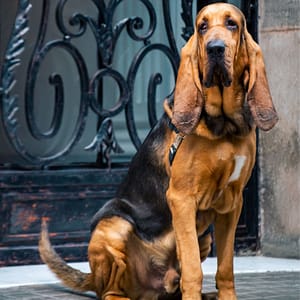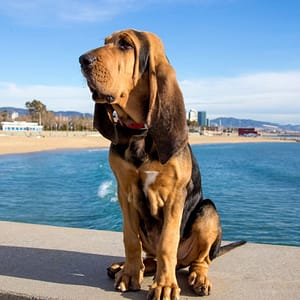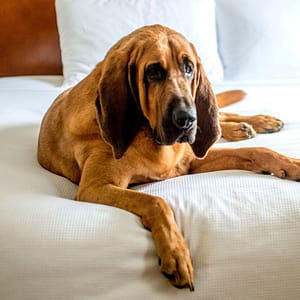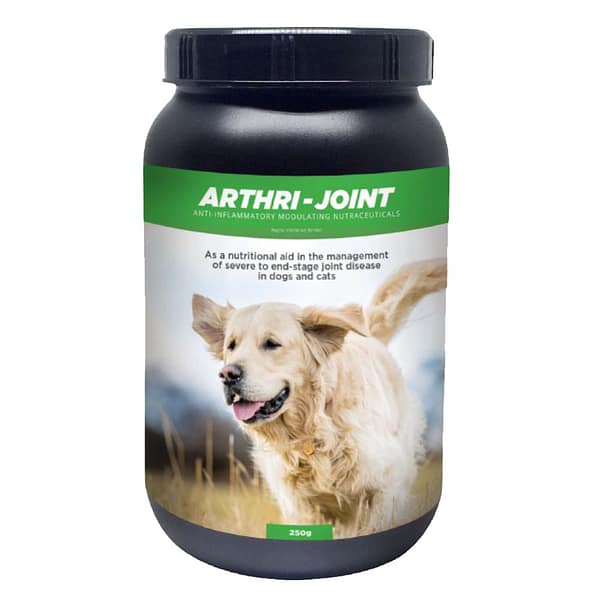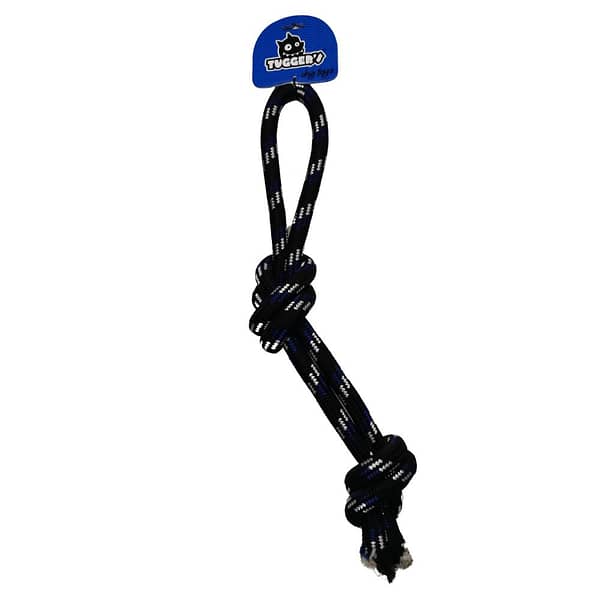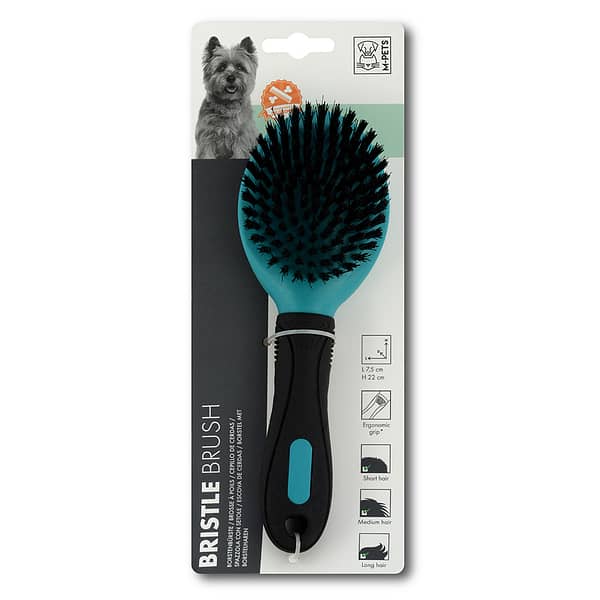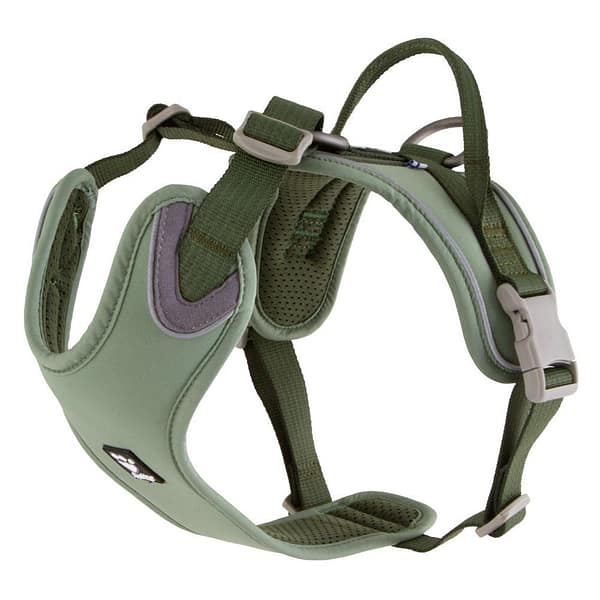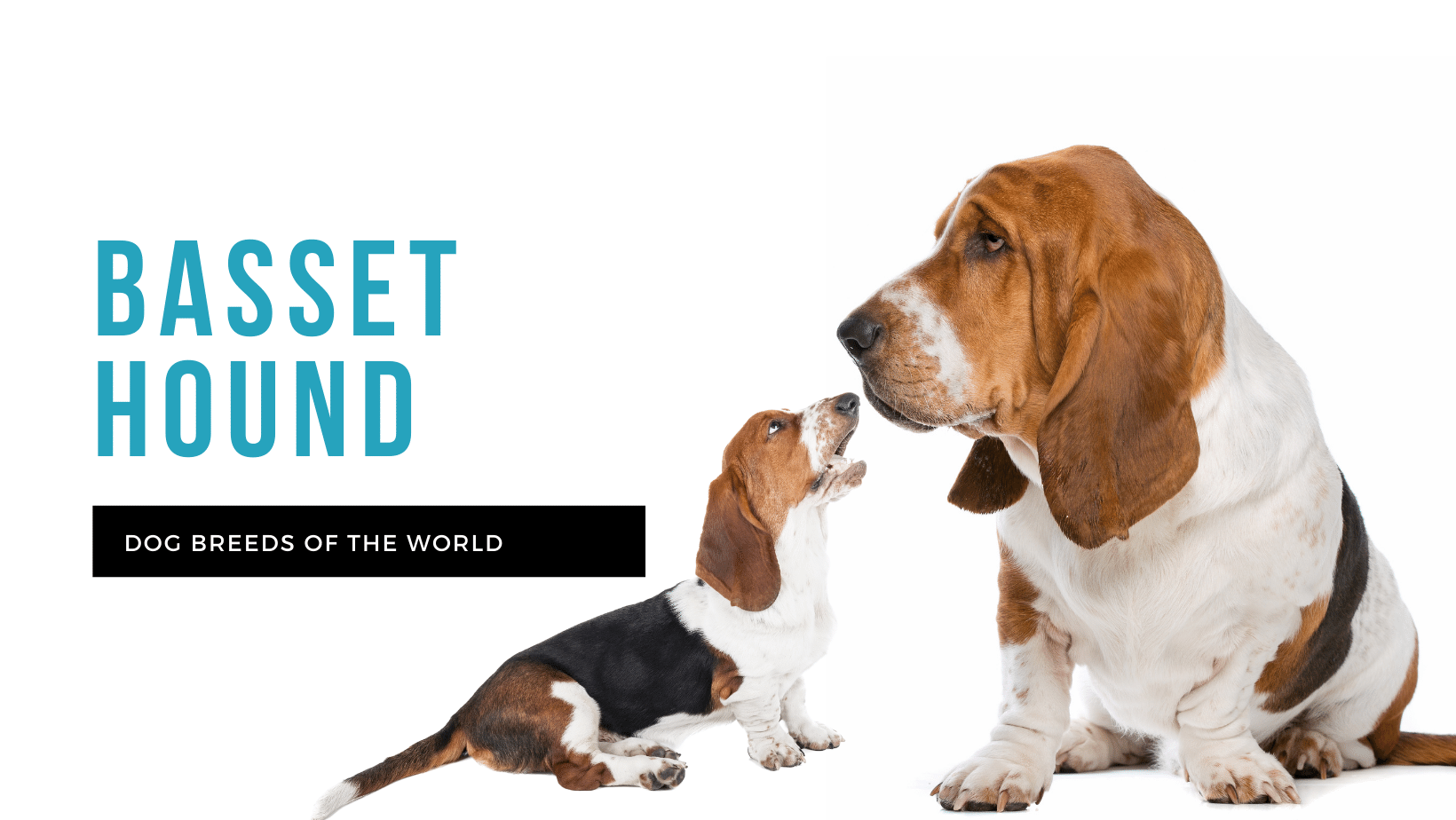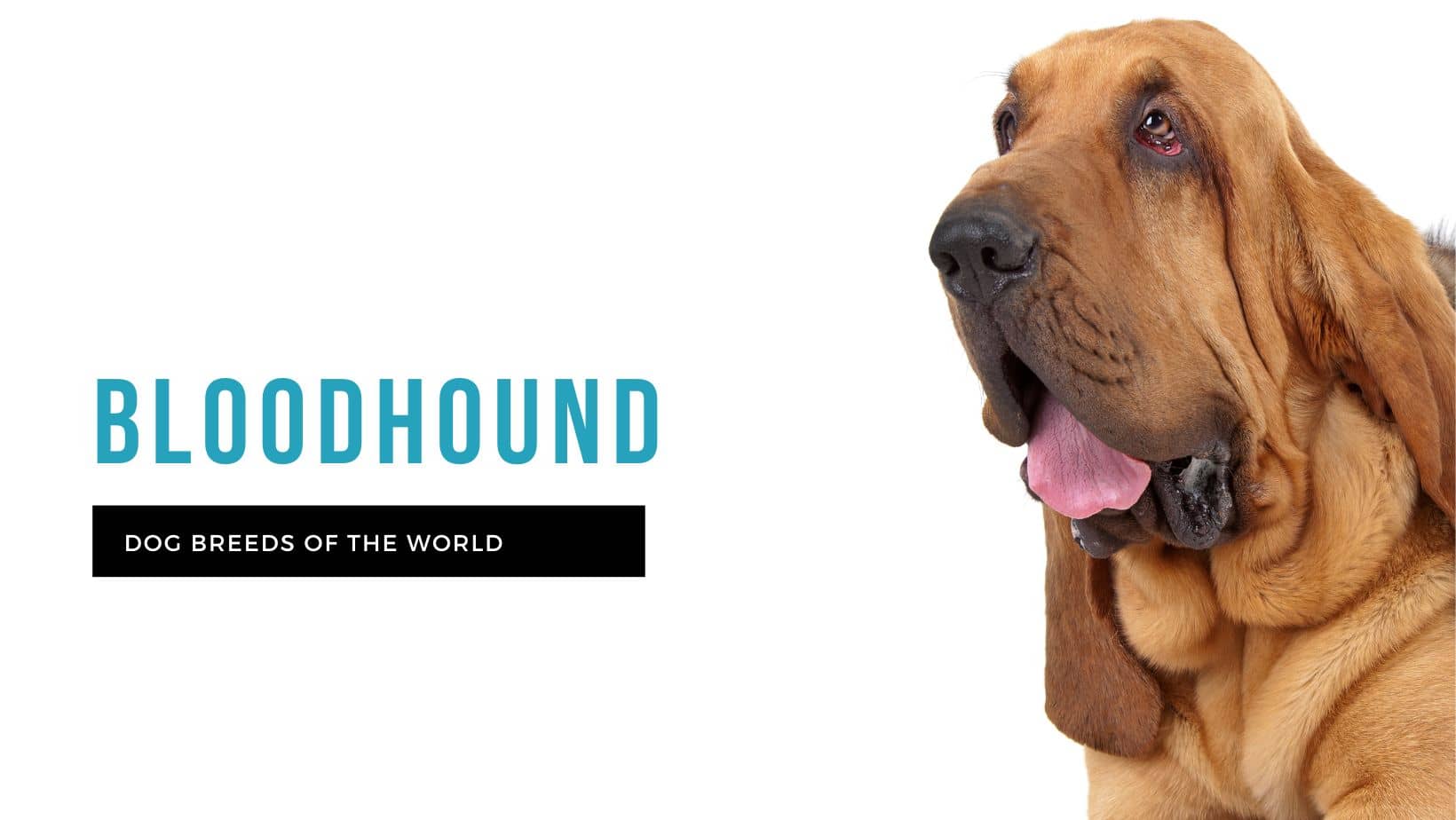
The bloodhound is famous for his scenting ability and is known as the sleuth hound. He has centuries of experience locating animals and people, especially off ‘cold’ trails, and is still used to find lost, missing or hiding people today.
He has a very stubborn streak and is only recommended for skilled and experienced dog owners who can give the bloodhound room to be himself, while training him well enough to adapt to being a companion animal. He loves children and is sensitive towards them and other pets in the household.
History
The bloodhound is such an old breed that there is uncertainty around his origins. In 300 BC a skilled scenting dog is mentioned in historical texts, which is believed to be the ancestor to today’s bloodhound. It is also accepted that the early bloodhound breed is likewise the forebear to other skilled scent hounds.
Medieval Europe appears to be the time during which the modern-day bloodhound was proactively developed for his tracking skills. It was the clergy and bishops of the 12th century who had hound packs that they rode with to find wild animals as well as people who were lost. The name ‘bloodhound’ comes from the fact that these famous dogs were mostly owned by members of the aristocracy – of high blood – and were called ‘blooded hounds’. The early bloodhound known as the St Hubert Hound was named after Francois Hubert (the canonised patron saint of hunters), who bred bloodhounds with the singular goal of improving their scenting skill.
Bloodhounds became legendary in England, were mentioned in Shakespeare’s plays, and developed their reputation for sniffing out criminals in hiding. When the rise of dog shows took place in the Victorian era, bloodhounds were naturally included in Queen Victoria’s canine pageant.
During the colonial era, the bloodhound was taken across to North America, but it was here that he developed a bad reputation for being ferocious and dangerous. It took the bloodhound’s entry into the Westminster Kennel Club Show in 1888 to reignite interest in this wrinkly hunter, from where his popularity grew again. American breeders imported a lot of bloodhounds from England, but it was then American bloodhounds that were used to restock the English breeding pool when it was decimated by World War II.
Today the bloodhound is still used by police and law enforcement agencies to track and locate missing people, and for search and rescue operations. However, he’s not as popular as a companion dog compared to other hounds.
Temperament
The bloodhound’s reputation for following a scent to the very end means that he’s one-track-minded and very independent. His powerful nose makes him curious and keen, but – paradoxically – he’s also very friendly and engaging with humans. When he’s not following his nose, he’s chilled and docile and loves human company.
Developed to be independent and job-driven, the bloodhound can be very stubborn and determined. Whatever habits he learns in puppyhood will remain throughout his life, so owners should make sure he learns the right ones! He’s very sensitive (despite being so stubborn) and wary of strangers. Whether he makes a good watchdog or not depends on his individual personality.
Health
A bloodhound with good breeding will be a healthy dog, but as with all purebred dogs, he’s predisposed to some health conditions. Most of these are the result of his size and conformation, but breeders need to obtain health clearances to rule out any of the following:
- Hip and elbow dysplasia
- Hypothyroidism
- Epilepsy
- Ectropion and entropion
- Skin fold dermatitis – always make sure his skin folds are clean and dry
- Gastric dilatation volvulus (bloat)
Exercise Requirements
The bloodhound may be a big dog with a droopy face, but that doesn’t make him slow and lazy. Quite the opposite. While he won’t break any land-speed records, he has endurance like no other dog. He’s renowned for being able to not only pick up a ‘cold’ scent, but to follow it for hours and hours until reaching his quarry. This is therefore a dog who needs long walks at a steady pace, and it’s non-negotiable to keep him leashed. If he picks up on a scent while you’re walking, chances are he’ll follow it instead of you. Games in a securely fenced yard will also be good for the bloodhound. He is a notorious escape artist, so fences should be high and strong.
To get the most out of a bloodhound, he should be socialised and trained from as early on as possible. He will become very set in his ways, so training him will ensure he’s set in the ways you want him to be! The bloodhound is a sensitive dog, so he should be trained with kindness, respect and lots of positive reinforcement. His handler will need lots of patience and consistency. Aversive training or punishment can make him aggressive and aloof.
Grooming Requirements
The bloodhound’s loose skin is covered by a dense coat that is quite short. He needs regular brushing to remove loose, dead hair as he is quite the shedder. He can quickly develop an odour, so he needs regular baths, but be sure to dry properly between his skin folds to prevent him from developing skinfold dermatitis. His long, pendulous ears can quickly become infected, so they need to be inspected and thoroughly cleaned on a weekly basis to keep him healthy. Daily teeth brushing and regular nail trimming are also important for the bloodhound’s health and wellbeing.
Ratings
Friendliness to other pets
Friendliness to strangers
Behaviour towards children
Statistics
| Size |
Large |
| Type |
Hound Group |
| Average adult weight |
48 kg |
| Average adult height |
66 cm |
| Average life span |
11 years |
| Breed family |
|
| Area of origin |
Europe and UK |
Gallery
Product suggestions
Similar breeds


